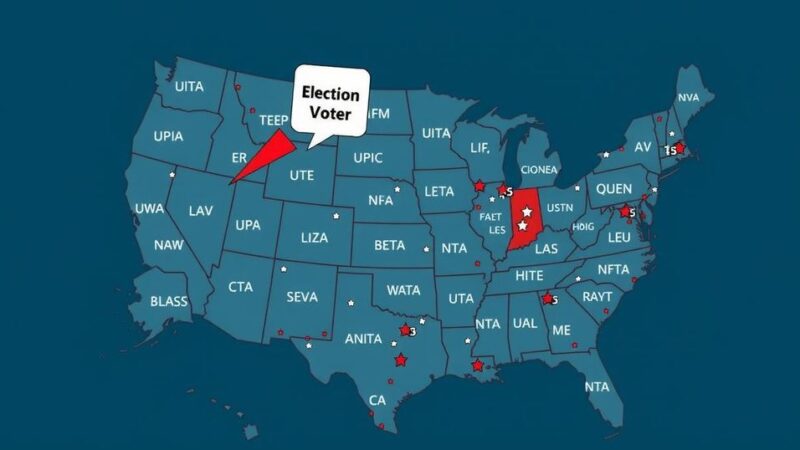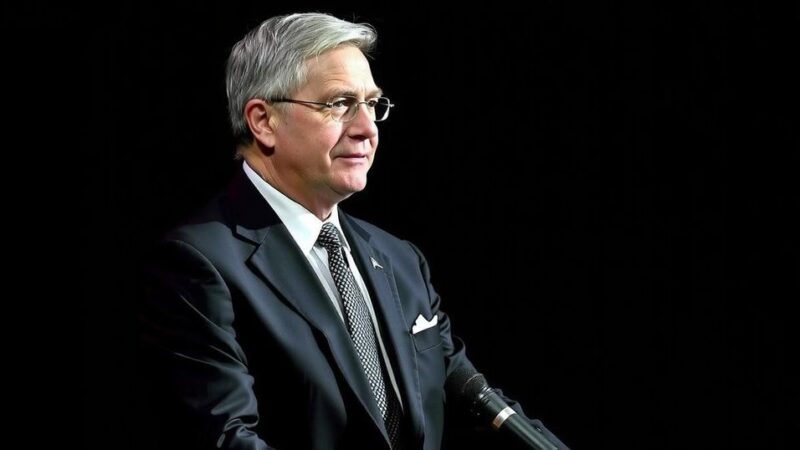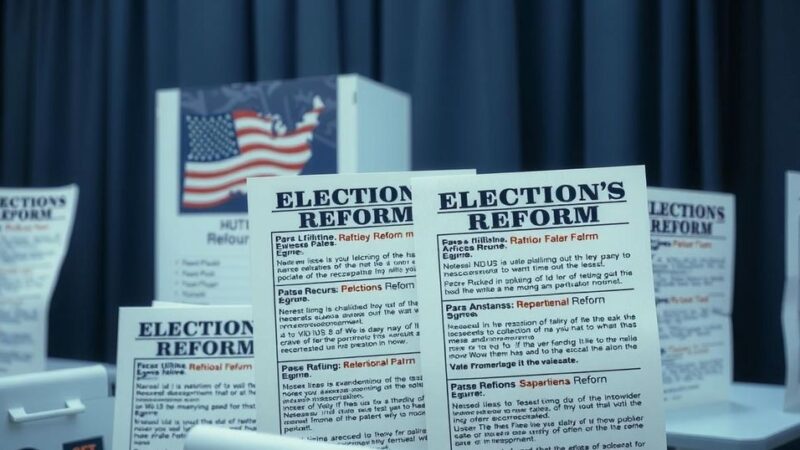Senator J.D. Vance and Governor Tim Walz debated on October 1, addressing critical issues such as the Middle East crisis, climate change, and immigration policy. The debate reflected sharp partisan divides concerning leadership efficacy, policy approaches to disaster response, and national security. Vance criticized the current administration while Walz defended the Democratic stance, both aiming to capture voter support five weeks before the election.
On October 1, with the election rapidly approaching, Republican Senator J.D. Vance of Ohio and Democratic Governor Tim Walz of Minnesota participated in their first and only vice presidential debate. The debate commenced with a handshake and quickly escalated into pointed discussions on critical issues such as the Middle East crisis, climate change, and immigration policies. The exchange opened with urgent questions related to international conflicts, particularly focusing on the ongoing tensions in the Middle East. Governor Walz emphasized the necessity of ‘steady leadership’ amid these crises, particularly in response to Iran’s recent missile strike on Israel, contrasting the current leadership with that of former President Donald Trump, whom he labeled as ‘dangerous.’ Vance, in response, asserted that Trump’s administration had maintained global stability through a policy of ‘peace through strength’ and criticized the current administration for providing Iran with substantial financial resources, which he claimed were being utilized to fund attacks against allies. As the debate transitioned to discussing climate change, both candidates expressed concern for the victims of Hurricane Helene, which had led to significant casualties. Vance underscored the importance of prioritizing American citizens in times of disaster and argued that the country’s clean energy efforts should focus on domestic manufacturing, in contrast to what he characterized as the Democratic approach of outsourcing production. Walz countered by affirming substantial investments made by the Harris administration in clean energy, asserting that the focus should remain on accelerating progress in both natural gas production and renewable energy development. The immigration debate became contentious as Vance criticized the border policies instated under Harris, framing them as a catalyst for increased illegal immigration and drug trafficking. He advocated a return to Trump’s measures, including increased deportations and construction of the border wall. The candidates remained committed to their respective partisan narratives, with the debate being moderated by CBS anchors Norah O’Donnell and Margaret Brennan, amidst strict rules including no audience and time-sensitive exchanges. Ultimately, the debate delineated a clear contrast between the candidates, revealing each party’s strategic priorities as they head towards the election. Vance and Walz’s contrasting perspectives reflect the larger political climate as the two parties mobilize supporters in key battleground states. The format limited their engagement to two-minute responses and structured rebuttals, highlighting their stances without the influence of audience interaction or prepared notes.
As the 2024 presidential election approaches, the vice presidential debate between J.D. Vance and Tim Walz becomes pivotal in conveying the strengths and key policies of their respective parties. With discussions centering on the Middle Eastern conflicts exacerbated by Iran’s aggressions, the candidates were keen to present their ideological differences. Climate change discussions emerged as timely, especially in light of the severe impacts faced due to natural disasters like Hurricane Helene. Additionally, immigration emerged as a critical topic, reflective of ongoing controversies surrounding border security and national policies. This debate is essential not only for the candidates to clarify their positions but also for voters who seek clarity amid polarized political landscapes.
The debate between Senator J.D. Vance and Governor Tim Walz revealed stark contrasts in their approaches to pressing national issues including foreign policy regarding the Middle East, domestic strategies for climate change, and immigration reform. With only weeks until the election, both candidates effectively articulated their party’s platforms, emphasizing leadership styles and policy outcomes as decisive factors for voters. The outcomes of such debates are crucial in influencing public opinion in key swing states, emphasizing the importance of these electoral discussions.
Original Source: www.upi.com






